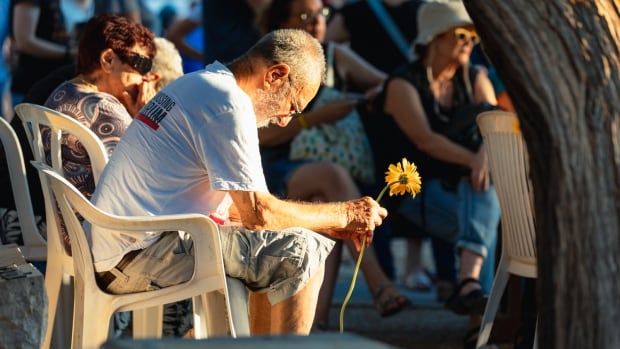
The calendar may mark a year on Monday since Hamas militants came storming across the border from Gaza into Israel, but at Kibbutz Nir Oz — one of the first places they attacked — memories are measured in people lost, not time passed.
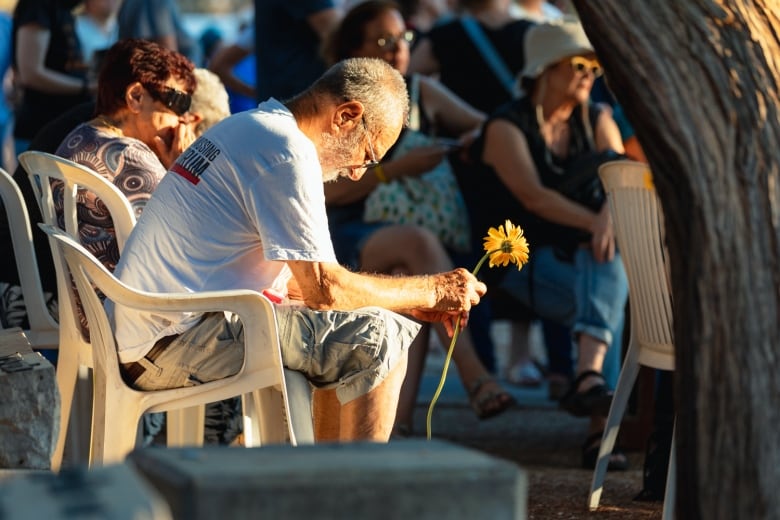
They’re measured by the funerals held and the number of friends missed, because they are still held hostage in Gaza. Some are alive, some dead.
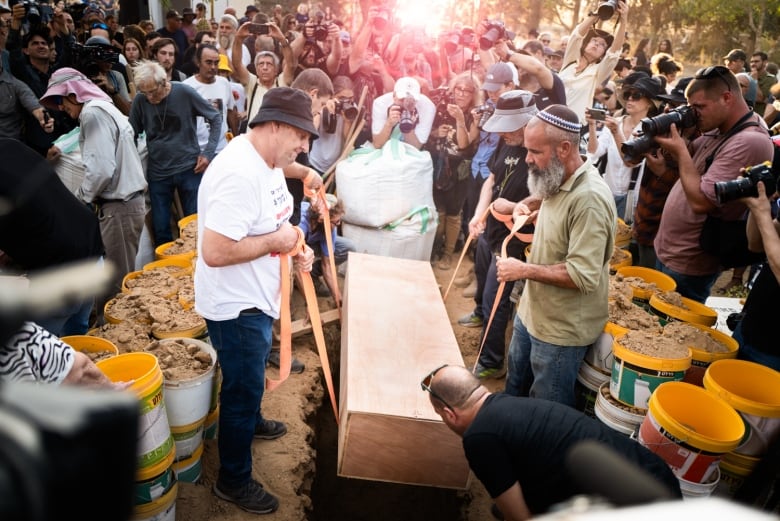
Late one afternoon in August, Avraham Munder and three others from Nir Oz were buried just outside the kibbutz fence, the hostages’ bodies discovered by Israeli soldiers in a tunnel under Khan Younis in the southern Gaza Strip. Hebrew songs echoed through the kibbutz — the kind Munder liked to sing — as his body was lowered into the ground. Hundreds watched.
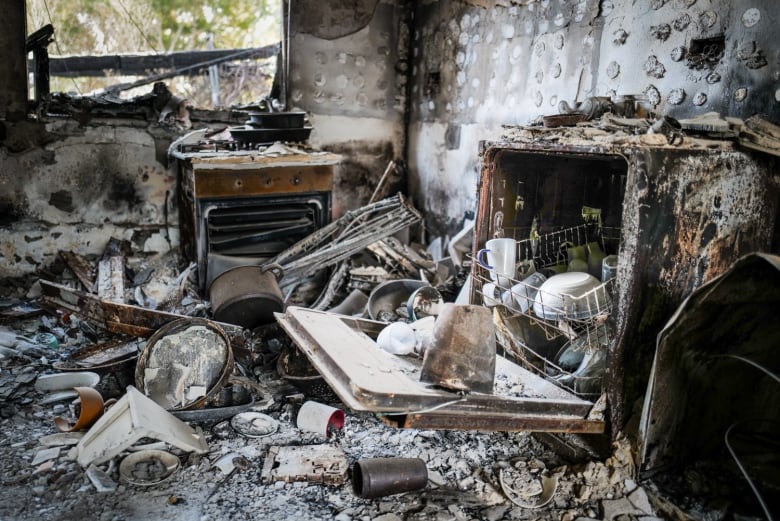
The kibbutz, normally described as peaceful, is now eerily deserted — a scarred skeleton of its lush self. Hundreds of militants looted and burned their way through the community, as residents tried to hide in so-called safe rooms, designed to protect against rockets but not invaders.
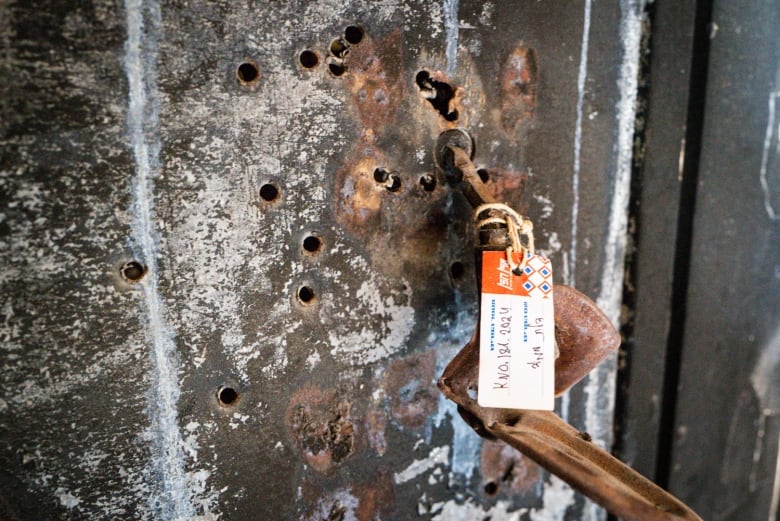
When the Siman Tov family barricaded themselves in their safe room, militants shot their way in, leaving bullet holes in the metal door and five lost lives: parents, twin six-year-old girls and a five-year-old boy.
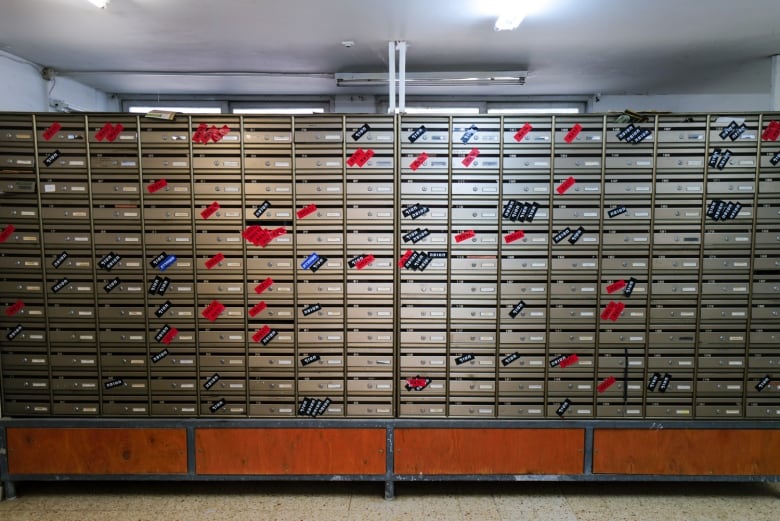
Mailboxes on the way into the communal lunchroom at Nir Oz tell the tragic story. The huge tally of just who was killed and who was kidnapped is carefully labelled in coloured stickers. Forty-six are marked “murdered” in red, 71 tagged as hostages in black, the 40 released during a brief ceasefire in November labelled in blue. A quarter of the kibbutz was lost on Oct. 7, 2023.
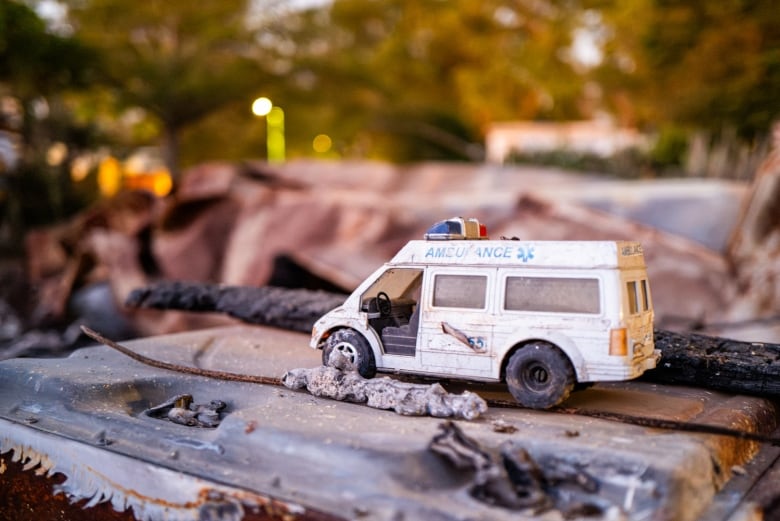
The people who lived here are devastated — bitter that help from the army, police or emergency services didn’t arrive for almost a day after the attack started. Many are unable to participate in memorials this year because 100 Israeli hostages are still held and wars rage. It’s too early, too painful, says Nili Bar Sinai. “We are still deep, deep in the trauma.”
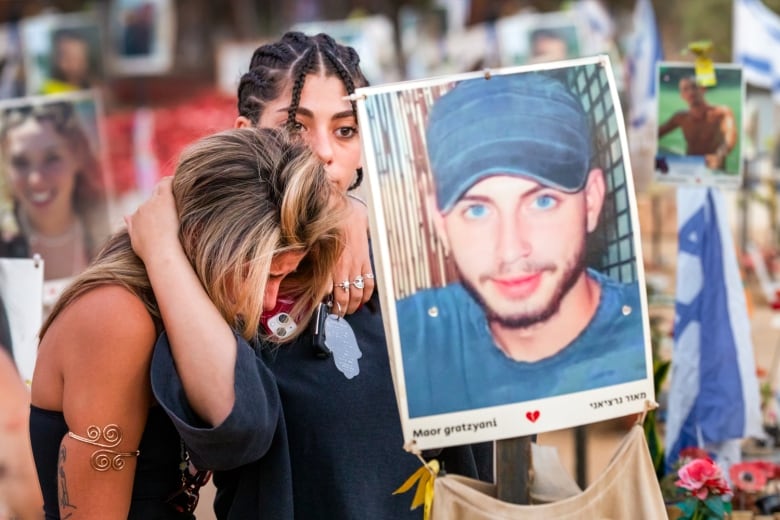
Just down the road from Nir Oz, some of the worst memories and the biggest grief from Oct. 7 fill an entire field: portrait after portrait of young partygoers who had just finished dancing to the last song at the Supernova music festival when they were attacked at dawn. Of the 1,200 people killed and about 250 taken hostage in Israel, 364 were killed and 40 kidnapped at the festival.
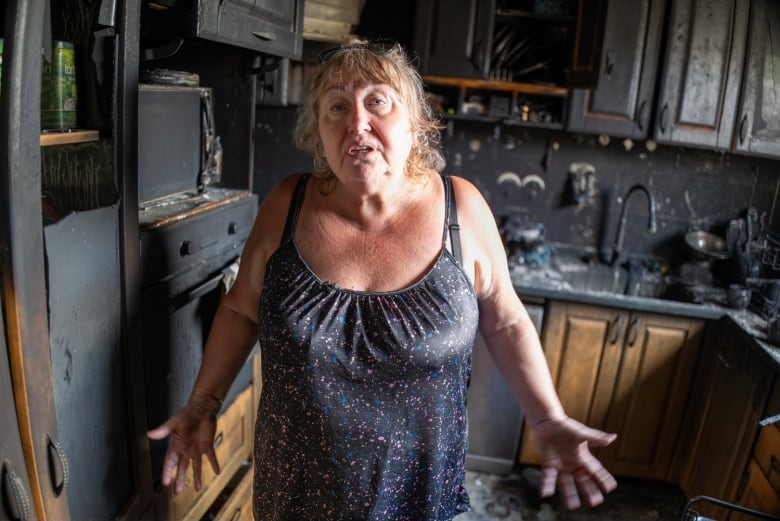
At the other end of Israel, in Katzrin, Jelena Lipfschitz stands in her blackened kitchen. Red alert sirens woke her up in the middle of the night in late August, she said, then “boom, boom! A rocket hit right next door!” Her house is destroyed and her future uncertain, in a region more than 60,000 people have fled because it’s considered too dangerous.
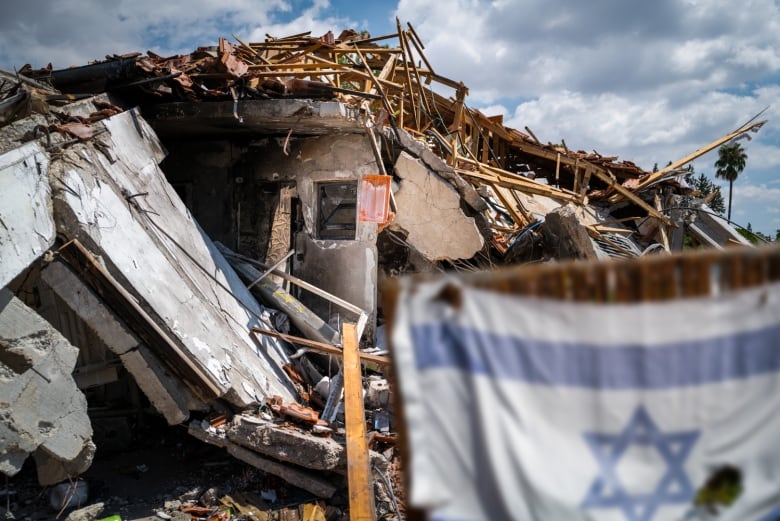
The war scars are among the freshest in Israel’s north and here in the occupied Golan Heights. Almost every day since Oct. 7 — and now almost every hour — rockets fly from neighbouring Lebanon. They are fired by Iran-backed Hezbollah, a militia Israel is attacking with increasing force from the air and ground just a few kilometres from Katzrin.
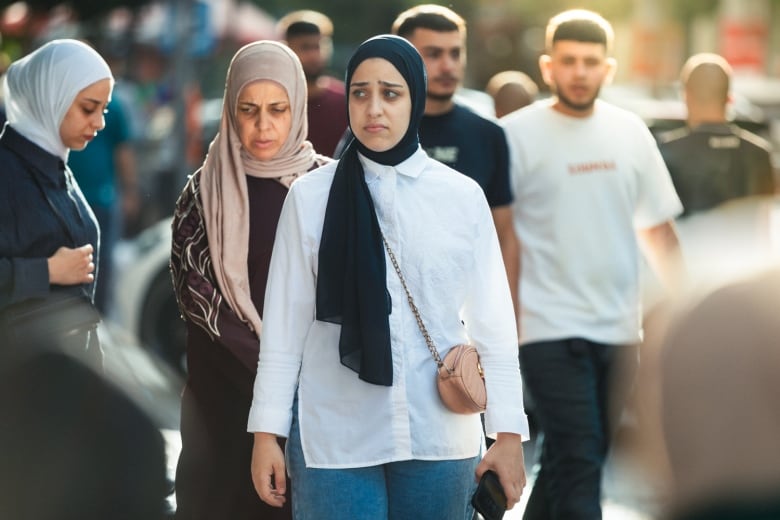
War has come to the Israeli-occupied West Bank as well, spreading fear and uncertainty among the Palestinians who live there. Israeli troops have gone after militants in the territory’s cities and refugee camps with rare force, accusing them of plotting to attack Israel. Settler violence against Palestinians has increased. And Israel has all but sealed off the West Bank, preventing some 100,000 ordinary Palestinians from entering to work for Israeli employers in the past year.
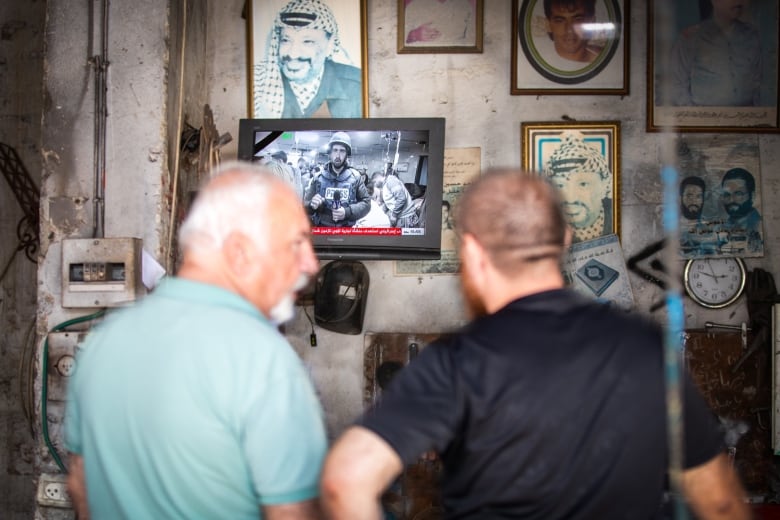
That has left economic scars at this metal workshop in Ramallah. With money tight, no one’s building. In fact, they say they’ve had just two weeks’ worth of work since Oct. 7. And that’s left way too much time to watch and worry about a war that keeps leaving its mark everywhere, it seems.
Photos by CBC’s Saša Petricic